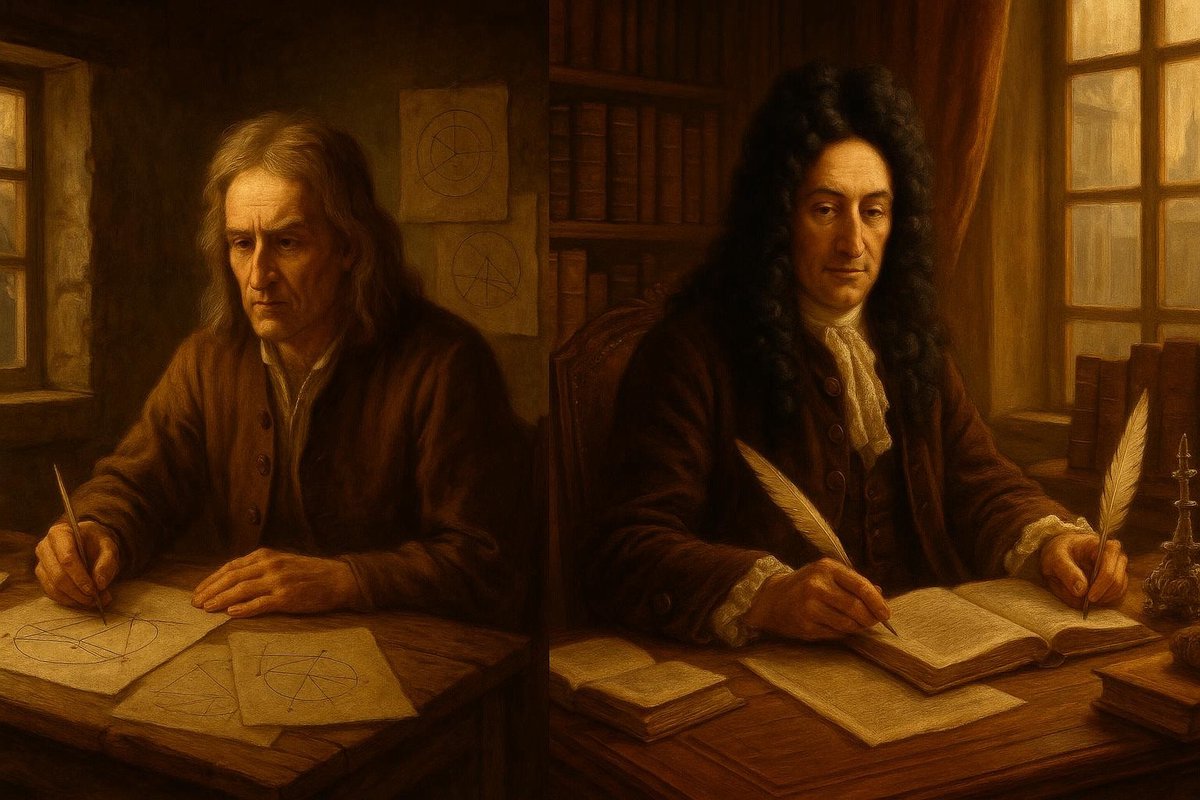
The Enigma of Changing Nature
Have you ever watched a waterfall and wondered about the magic behind its continuous flow? The secret lies in calculus, a branch of mathematics that changed the way we understand the world. Interestingly, calculus wasn’t always the sophisticated tool we know today. In the early 17th century, the world was ripe for a mathematical revolution. But the path to understanding the science of change was anything but straightforward.
Before calculus, mathematicians struggled with problems involving motion and change. The prevailing mathematical methods, rooted in ancient geometry and algebra, could not describe the dynamics of the changing world accurately. It was a time when scientific thought was undergoing its own motion. The Renaissance had inspired minds across Europe, leading to a thirst for new knowledge and understanding. This was the backdrop against which calculus emerged.
The Breakthrough: Newton and Leibniz
The story of calculus is inextricably linked to two of history’s greatest thinkers: Isaac Newton and Gottfried Wilhelm Leibniz. Both men, driven by personal passion and curiosity, embarked on parallel journeys at the same time — yet worlds apart.
- Isaac Newton, working in the isolation of his family farm during the Great Plague of 1665, pondered the heavens. No wonder he was focused on understanding the motion of celestial bodies.
- Gottfried Leibniz, on the other hand, was a polymath whose travels across Europe exposed him to diverse ideas and philosophies. His intellectual style was collaborative and cosmopolitan.
Remarkably, both independently developed the foundations of calculus. Newton’s work centered on the concept of ‘fluxions,’ while Leibniz introduced the differential and integral calculus. Their methods varied, yet their conclusions shared the same revolutionary spirit.
Supporting Evidence: Rivals and Correspondence
The discovery didn’t go uncontested. As time goes on, the rivalry over who invented calculus first deepened. Many people believe that such rivalries fuel progress.
- Newton and Leibniz’s correspondence and subsequent debates were intense, highlighting their different approaches and personalities.
- Newton’s rigorous mathematical proofs contrasted with Leibniz’s elegant notations, which remain in use today.
Despite the controversies, evidence of their genius proliferated. The challenge of proving these new theories led to a surge in mathematical publications and debates across Europe. Their rivalry, although bitter, propelled the acceptance and advancement of calculus, as scholars across the continent engaged with and expanded upon their groundbreaking work.
Modern Relevance: Calculus Today
Calculus, once a contested novelty, is now a cornerstone of modern science and engineering. It models everything from the spread of diseases to the orbits of satellites. The intellectual journey of Newton and Leibniz resonates today as a reminder that innovation often arises from both collaboration and competition.
- The principles of calculus underpin the design of technology and infrastructures we rely on daily.
- New generations of scientists and mathematicians build upon their legacy, solving problems Newton and Leibniz could scarcely have imagined.
In every smartphone, space mission, and economic model, the spirit of calculus lives on. This timeless legacy demonstrates the power of human curiosity and the serendipity that can lead to groundbreaking discoveries.
The resilience and creativity of Newton and Leibniz remind us that great ideas can sprout from the most unlikely of circumstances. Their story is a testament to the power of passion, chance, and persistence in advancing human knowledge.
Fuel Someone Else’s Curiosity
As you reflect on the story of calculus, consider sharing this journey with others. Perhaps there’s someone you know who would be inspired by the tale of how passion and chance collided to create something historic. Let’s ignite curiosity and celebrate the spirit of discovery, one story at a time.

Leave a Reply